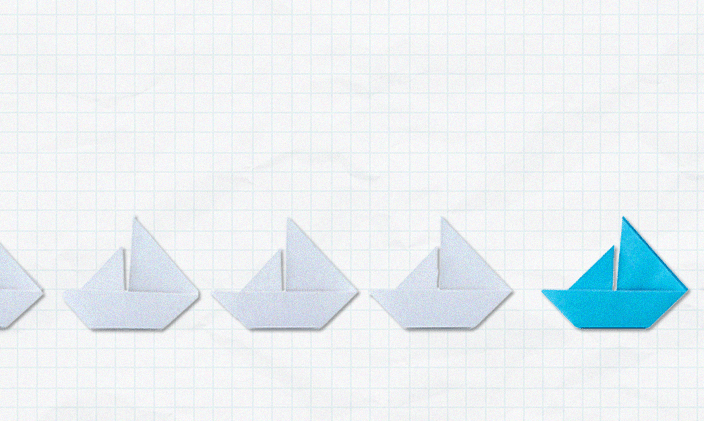How to become a nurse educator

Written by Michael Feder

This article was reviewed by Raelene Brooks, Dean, College of Nursing.

Nurse educators fulfill an essential role in healthcare and need to possess a passion for both nursing and teaching. Let’s look at what the role involves, what skills they need, and the various job titles in nurse education.
What is a nurse educator?
Nurse educators are registered nurses (RNs) who transition from nursing practice to a teaching role. They use the expertise they’ve acquired to help prepare other nurses and prospective nursing students for their professional and technical roles.
Educators in nursing have different titles and responsibilities depending on their setting and employer. For example, clinical educators teach nurses in healthcare institutions. By contrast, academic educators provide instruction in the classroom.
Some teach nurses who are preparing for their initial entry into their careers. These educators prepare students to be accountable and responsible within their respective scope of practice.
Nurse educators also provide ongoing education to nurses already working in the field. These educators spend time familiarizing nurses with changes to medical and information technology, diagnostic processes, compliance standards, electronic health record documentation and other relevant industry updates.
Nurse professors also play an important role in research by considering new processes and theories that could better address patient needs. They have an advanced set of skills and training, have the capabilities to design and implement curriculum and revise educational programs for nurses.
What does a nurse educator do?
To help maintain compliance and promote efficiency, nurse educators instruct fellow nurses in a variety of best practices, teaching them how to better fulfill their responsibilities and further mentoring them in their role.
While there are different types of jobs in this field, what they have in common is a focus on the competency and knowledge of new or practicing nurses. This type of role is usually preceded by some time spent in clinical practice, and most of these professionals possess a bachelor’s degree. It is a way for those with experience in the nursing field to translate that experience to others.
Responsibilities
Nurse educators handle a variety of responsibilities . In addition to providing direct instruction, they are commonly responsible for:
- Developing curricula for nursing instruction
- Evaluating nurse performance in a healthcare setting
- Overseeing instruction of students in nursing programs and newly licensed nurses
- Researching new technologies, processes and best practices for possible implementation
- Auditing current nurse duties and processes to identify opportunities for improvement
- Implementing ongoing training for experienced nurses
- Advocating for resources that can improve efficiency and patient outcomes
They also play an important role in quality control. New nurses need to be qualified before they begin work, and need training and refresher courses to ensure they remain qualified for their duties.
Job skills and requirements
To become a nurse educator in the practice setting, candidates must be a registered nurse with clinical work experience and a master’s degree. The advanced degree must be a Master of Science in Nursing in certain states. Strong teaching skills
are ideal but not necessarily required. Instructors with other strengths, such as observation, listening and patience, may find themselves particularly well suited to this role.
Educators also need to understand and uphold standards in nursing informatics , which is the collection, analysis and protection of patient data. This means staying abreast of advancements in the field of nursing informatics, including any new informatics-related responsibilities nurses might have.
To continually provide high-quality instruction, many join the National League for Nursing (NLN). Certification through the NLN gives access to leadership training, webinars, events and other skill-building programs that can inform their curricula, lessons and instruction methods.
Essential qualities
Here are some common qualities of effective nurse educators:
- Passion for teaching and mentoring — A strong desire to instruct new generations of qualified, effective nurses.
- Assessment/diagnostic test capabilities — RNs should understand how to correctly perform assessments, run diagnostic and lab tests and build treatment plans for patients.
- Effective communicator — There is regular communication with nurses when teaching effective practices. Interacting with patients to demonstrate effective patient care is a good practice to teach nursing students. This role also requires empathy, which affects how communication is perceived.
- Proactive researcher — Nursing is a rapidly evolving field that requires regularly finding time to research new procedures, compliance parameters and technologies that can further help a healthcare organization meet its goals.
- Encouraging students —Encouraging new and experienced students creates an environment where nurses can learn to implement modern strategies and procedures.
- Patience — Students won’t always master nursing concepts the first time. Effective nurse educators show patience when fielding student questions and correcting actions.
Effective nurse educators also regularly apply adult learning theories in the workplace. These main principles in educating adults help improve nurse education and encourage confidence in both students and teachers.
What are the types jobs for nursing educators?
Clinical nurse educator
The most hands-on of the jobs in this field, clinical educators perform their work in healthcare facilities, such as hospitals and clinics. They work with nurse managers and other administrative staff to institute curriculum and develop policies and procedures.
Clinical educators are responsible for making sure that registered nurses know the most current evidence-based practices when it comes to patient care. They work with RNs in both one-on-one and group settings to evaluate nursing practice competencies, train nurses on the use of new technology and provide professional development opportunities.
Faculty nurse educator or professor
Nurse educators and professors can also be found in classrooms and lecture halls in colleges and universities, where they create innovative methods to teach and engage students and evaluate learning. As faculty members, they perform much of the work of a traditional university professor, in addition to using their personal nursing experience to supplement the material. They are responsible for developing curriculum, exercises and experiments, grading papers and exams, and guiding individual students.
At the graduate level, they often oversee their students’ research, as well as conducting their own research in the field of nursing. By publishing their research, they are able to have a big impact on how nursing is performed across the world.
Nursing education consultant
Registered nurses can pursue becoming a nursing education consultant after they have gained the level of experience required by their states, sectors or employers. To help define their needs and strategies, they sometimes turn to nurse education consultants to weigh in.
Consultants can be involved in both school and clinical settings, as well as in private companies or serve at accreditation organizations and state boards of nursing.
Nursing education consultants are responsible for evaluating the effectiveness of nurse education programs, measuring outcomes and making recommendations. Their input can improve nurse education programs and introduce approaches that otherwise may not have been considered.
Learn how to become a nurse educator
If you’re curious about degree programs that can help you on your path to becoming a nurse educator and grow your knowledge and skills within the nursing field, University of Phoenix offers the following degree options:
- RN to Bachelor of Science in Nursing (Competency-Based)
- Registered Nurse to Bachelor of Science in Nursing
- Master of Science in Nursing with a concentration in Nurse Education
- Master of Science in Nursing/Family Nurse Practitioner
Contact University of Phoenix for more information.

ABOUT THE AUTHOR
A graduate of Johns Hopkins University and its Writing Seminars program and winner of the Stephen A. Dixon Literary Prize, Michael Feder brings an eye for detail and a passion for research to every article he writes. His academic and professional background includes experience in marketing, content development, script writing and SEO. Today, he works as a multimedia specialist at University of Phoenix where he covers a variety of topics ranging from healthcare to IT.

ABOUT THE REVIEWER
Dr. Raelene Brooks, dean of the College of Nursing, has been a registered nurse for more than 25 years and practiced extensively in the areas of ICU, trauma and critical care. Her publications include a focus on nursing education, critical care and diversity, equity and inclusion. She is a leader in creating, guiding and launching innovative curriculum.
This article has been vetted by University of Phoenix's editorial advisory committee.
Read more about our editorial process.


